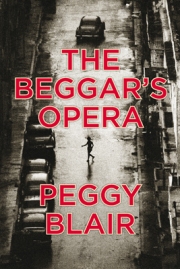Canadian writer Johanna Skibsrud won the coveted Giller Prize last night for her debut novel, The Sentimentalists. It sounds like a great read. If you can find a copy.
Skibsrud’s novel was published by Gaspereau Press in Kentville, Nova Scotia. It’s a tiny operation that cranks books out by hand. Gaspereau Press’s mission statement reads as follows:
“At the core of our philosophy is a commitment to making books that reinstate the importance of the book as a physical object, reuniting publishing and the book arts. Many of our covers are letterpress-printed, feature original artwork by artists … and are printed on fine paper, in some cases even handmade. Most of our books are smyth-sewn & bound into card covers and are then enfolded in letterpress-printed jackets. Our house paper is Rolland’s Zephyr Antique Laid, a creamy, sensual book paper.”
They do sound gorgeous.
When Skibsrud was shortlisted for the Giller Prize a month or so ago, the 400 copies that had sold to that point leaped to 2,000 orders. But the book couldn’t be completed, due a lack of those beautiful covers. Even so, publisher Andrew Steeves declined an offer from a large publisher to lend a hand. A Gaspereau Press book is, in Steeves’ eyes, a work of art. If someone else published the novel, it wouldn’t be a Gaspereau anymore.
The author’s response at that time was a little conflicted:
“My personal opinion is that making literature more widely available could never be a ‘lowering of standards’; that it could only be a positive, for the publisher, the writer, as well as for the potential audience. But that is the perspective of one author, regarding one book. Gaspereau has a long and respected tradition behind them, and an incredible list, and that will continue.”
One author, and one book, perhaps. But now that author has won the Giller. And Steeves is still refusing to move quickly to meet the increased demand. He’s quoted as saying:
“Our plan is still to produce the books here and to produce them at a sane rate that we can manage. I think it’s an interesting opportunity to slow the world down a hair and let people realize that good books don’t go stale … If you want a world that will only produce the kind of books Random House does, then, you know, you’re going to get a pretty bland McDonald’s culture.”
Take that, you big publishers. Ouch. Still, it seems rather ungracious, given that Random House was one of the publishers that offered to help out.
According to Joel Silver, the president of Indigo, Giller Prize winners “tend to gain a massive amount of momentum over the next six to eight weeks. And then sometimes the media love wears off and it’s tough to get attention.”
Most Giller books sell in the first four weeks.
Does this small window of opportunity make any difference to Gaspereau Press? Apparently not.
According to The Chronicle Herald, Steeves says he can’t really worry about whether Skibsrud is frustrated that her novel is in short supply if that conflicts with his mission:
“My job is to be faithful to the values that we subscribe to here — to make good books, to do them well, to do them the best way we can and to stand up for and live out those principles.”
Surely the mission of a publisher is to, well, publish books. And to sell them. Not to mention to promote their list. But Gaspereau Press apparently judges its books only by their covers. (It gives a whole new meaning to the term ‘vanity press.’)
Forget the Christmas market. Forget the momentum the Giller would provide to sales over the next few months. Forget the boost it would give a new author and a small publisher. No, a book published by Gaspereau Press isn’t something we’re supposed to read, apparently. We’re supposed to admire it.
Which would be great, if we could get actually get one.
Steeves’ suggestion for those ‘desperate’ to read the book is to download the e-version. Which of course isn’t hand-pressed with original art or creamy white pages or particularly beautiful. But at least it’s available.
Johanna Skibsrud has been extremely gracious about her publisher’s intransigence. I hope her $ 50,000 prize takes the edge off her disappointment. But I wouldn’t be at all surprised if she switches publishers in the future.

















Boy, there are so many issues here.
First in my mind, since I have written a few books, is where is the author? When you publish a book you do an author’s tour. When you win a big prize like this, you do another tour to support sales. She’s in Istanbul or on a train headed for Siberia. It doesn’t appear that she is that concerned with sales.
Secondly, in my book contracts, the publisher has domestic and foreign rights. No one seems to ask if Gaspereau was generous in allowing the British agent and her boyfriend who bought the rights to get into the act.
Thirdly, just because a larger publishing house offers to help print something doesn’t mean it’s in everyone’s best interest.
A lot of people on a lot of websites are talking about a business they don’t know. The publisher got no credit for even agreeing to publish the book. Anyone who has ever had an idea for a book knows it’s not a given that it will ever see ink. Lots of famous authors have been rejected. People need to take a breath and see how the world unfolds in less than a week.
LikeLike
Hi, Allan,
From what I’ve read, Gaspereau gave up foreign rights because Andrew Steeves felt he had no capacity to deal with them.
Interesting: today I read that the contact by the agent was not with Gaspereau but with the author directly, and that her connection to jurist Ali Smith was fully disclosed. Either way, it was practical, I think, of Gaspereau to recognize what it can’t do and let someone else do it. Which is why its refusal to let a big publisher step in to pick up the slack makes so little sense (to me), when its underlying concerns are considered.
Gaspereau doesn’t want to turn out books that don’t meet its own standards. I get that. But Gaspereau could have continued its smaller run of high quality, artisanal books, and let someone else run with the 40,000 or so it couldn’t produce, selling its own as a limited edition and maintaining its higher standards.
As for the author touring, I can’t be too critical. If she didn’t know she was going to win, she probably had that trip planned a long time ago.
An agent I know who represents two authors on the New York Times bestseller list thinks that touring and book signings are a waste of time: her authors don’t do it. When a book is selling 60,000 copies a week (or like Alan Bradley’s, 1,000 a day in Germany), it’s all ‘buzz’, and not much related to anything undertaken by the author.
In this, as in all matters, reasonable people can disagree. Thanks for the feedback!
LikeLike
Not quite correct on that, but what I know is not mine to tell. But large parts of the story will fall into place in the next few hours.
LikeLike
Now that the announcement has been made I can tell you that Gaspereau began negotiations to print a trade edition of the book with two hours of the win. The deal which has been done has been done among three independently owned Canadian companies: Gaspereau, Douglas & MacIntyre and Friesens. It gives the biggest bang for the buck to Canadians, which includes the author. 30,000 copies of the book will be off the presses by Friday – 10 days after the win was announced.
As for the foreign rights, Steeves gave them back to the author when she said a Brit literary agent was interested. He didn’t look for a penny of that, even though it was his right to do so and take a cut. And both author and agent were award of the deal being brokered by Steeves for this larger Canadian print run.
LikeLike
That all sounds good. But why did Steeves insist, then, that no-one except Gaspereau would produce this book? He could have saved himself a lot of splashback.
LikeLike
Because a) it wasn’t a done deal, b) they were working across about 13 time zones, c) regardless of what people thought, it wasn’t everyone’s business. On the East Coast, people generally keep to themselves until they have something to say. The rest of the continent reads that to mean we’re all country bumpkins.
We can’t help if people jump to conclusions. It just makes them look silly later on.
LikeLike
For a country bumpkin you have one of the most interesting blog/backgrounds I think I’ve read about. You won’t see too many rhinoceruses on these pages. Can I add you to my blogroll?
LikeLike
Hmmm, I didn’t mention coming home to find an elephant in the back yard? I was 8 and Dad thought it would be fun if I could invite my friends over for a ride on an elephant. FYI – elephants have thick spike-like hair on their back that can really hurt if you’re not careful. Plus, they shit canonballs and eat all your flowers (just in case you ever thought of having one in your backyard).
Sure, go ahead. Add me.
LikeLike